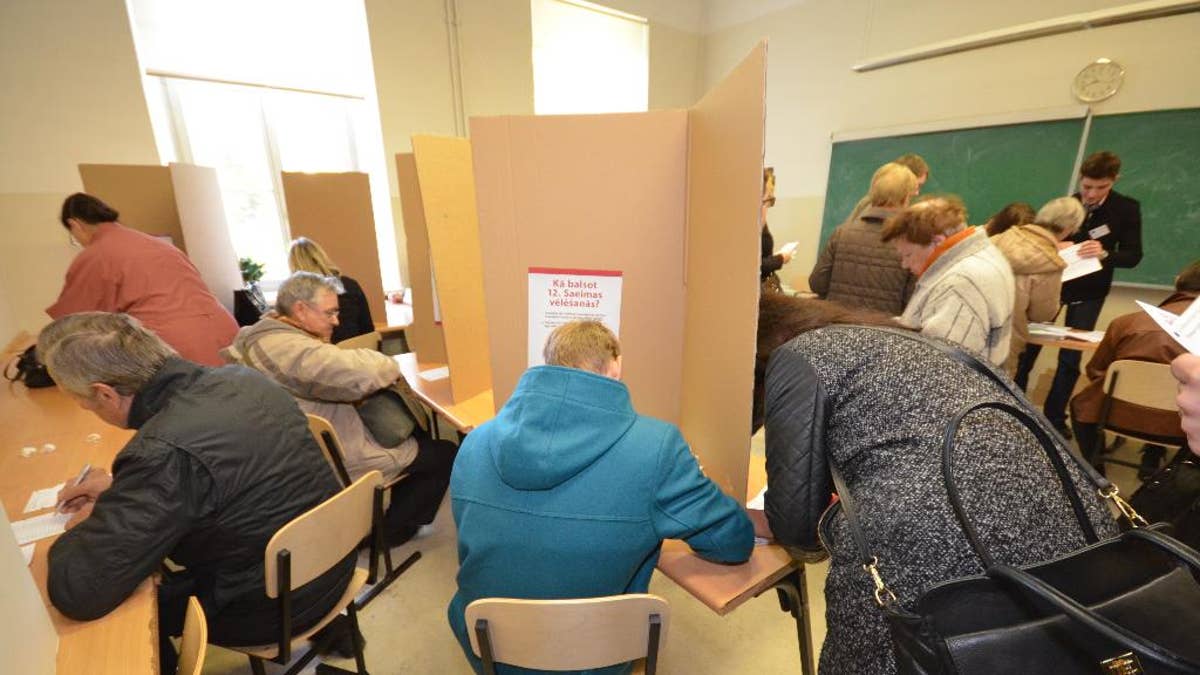
Latvian voters cast advance ballots at a high school in Riga on Thursday, Oct. 2, 2014. The Baltic country is holding a Parliamentary election on Oct. 4, amid worries over Russia’s intervention in Ukraine. (AP Photo/Tor Bernhard Slaathaug) (The Associated Press)
The Baltic nation of Latvia has proposed legislation to taper Russian influence within its borders, where it's estimated that 40 percent of the population are Russians who call it home.
Current Latvian law states that a person cannot become a Latvian citizen if he or she does not speak fluent Latvian. The thousands of ethnic Russians who reside in the country contend that they moved to the Baltic nation when it was part of the Soviet Union and was therefore a part of a single nation.
As the Canada-based Center for Research on Globalization explains, ethnic Russians argue that their presence in Latvia is as natural, “as if an American moved from Illinois to California.”
Built around the notion of the Russians as "foreign occupiers," the new legislation aims to have schools for national minorities be conducted completely in Latvian. At the moment, schools for ethnic minorities allow 40 percent of subjects to be in a language other than Latvian. Under the new legislation, students would only be able to learn in their mother tongue in subjects related to culture and history.
Baltic-Russian relations have been tense for years, with the region fearing an invasion similar to Russia's 2014 annexation of Crimea.
In September 2017, phone services in Latvia, Norway and Sweden were reportedly jammed for hours during a Russian military exercise in the Baltic Sea, according to The Associated Press. NATO Secretary General Jens Stoltenberg expressed concern over Russia's use of electronic warfare.
With recent military developments in the region including an influx of Baltic, Scandinavian and Russia troops on the border, anti-Russian sentiment in Latvia is expected to escalate.
If the legislation is signed into law by Latvia's president, the reform will likely be enacted by Sept. 1, 2019.




















